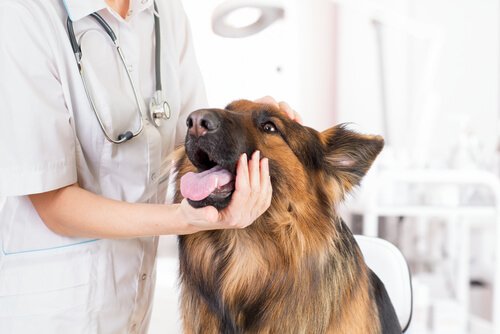Is neutering good for pets?

Neutering cam benefits pets in several manners. Many people neuter their pets immediately after adopting them due to it being a matter of health and safety. However, is neutering good for pets? It’s necessary to analyze the pros and cons of this common procedure in detail.
Having a pet requires a lo of responsibility. When a person adopts a dog or cat, it is important to take the animal to the vet. In fact, it is one of the first things that should be done. Likewise, it’s normal for an owner to even consider if neutering his dog would be worth it. Among other things, it is done in order to prevent animals from overpopulating the area.
Thousands of animals are put down each year because of overpopulation. Without a doubt, neutering plays an important role in controlling this problem. Secondly, there are ways to carry out this procedure.
The animal’s owner must be well-informed about the effects of neutering.
In general, the recommended age for neutering is between 6 and 8 months. After the procedure, the animal will undergo some changes in his behavior. The vet will inform you about these details before performing the operation.
Is neutering good for pets?
Neutering has many benefits, which include:

- Neutering eliminates the risk of testicular cancer in males. This deadly disease will be prevented by removing the testicles. Testicular cancer is a common problem in older male dogs and cats.
- Spaying prevents the possibility of developing uterine cancer and other related diseases in females.
- Neutering prevents prostate problems in males. The procedure does not eliminate prostatic illnesses by 100%. However, it considerably decreases the possibility of developing prostate cancer.
- Spaying females eliminates the inconveniences caused by menstrual bleeding. It also prevents certain conditions females experience.
- In addition, neutering dogs and cats prevents problems caused by psychological pregnancy, which is very common in female dogs.
- After neutering, the animal will tend to urinate less due to not feeling the need to constantly mark his territory. This is a great relief for pet owners who keep animals inside the house.
- Neutering decreases the habit of animals escaping. When neutered, the dog or cat will not feel the need to chase other animals. This is another great benefit of neutering.
After analyzing this matter, experts indicate that neutering is beneficial. Therefore, surgical intervention can solve serious health problems that an animal might have.
Disadvantages of Neutering
Neutering does have certain drawbacks. The following are some of examples:
- Other animals might find neutered dogs and cats very attractive. On the other hand, some animals may also become aggressive towards the neutered animal.
- Neutered animals may grow taller than normal.
- Neutering boosts the risk of developing diseases such as osteosarcoma and two types of lethal cancers.
- A dog or cat neutered before turning 5 months old will be more likely to suffer from hip dysplasia and cranial cruciate ligament rupture. These ailments can cause great complications.
- Neutered dogs and cats have a higher risk of developing hypothyroidism.
- Neutering can affect the animal’s appetite and metabolism as well.

As for an answer to the question, “is neutering good for pets?”, many experts say that neutering offers more advantages than drawbacks. However, being knowledgeable about the subject is always a good idea.
It’s important to speak with the vet when it’s time to neuter an animal. These experts will always provide professional insight. Likewise, animal owners may get appropriate advice in veterinary clinics regarding their animal special needs.
Don’t forget that neutering causes behavioral changes. When neutered, the animal will tend to act differently. However, this will only happen until he gets used to it. Let’s not forget that this is a great physiological change. The animal needs time to assimilate the changes naturally.
